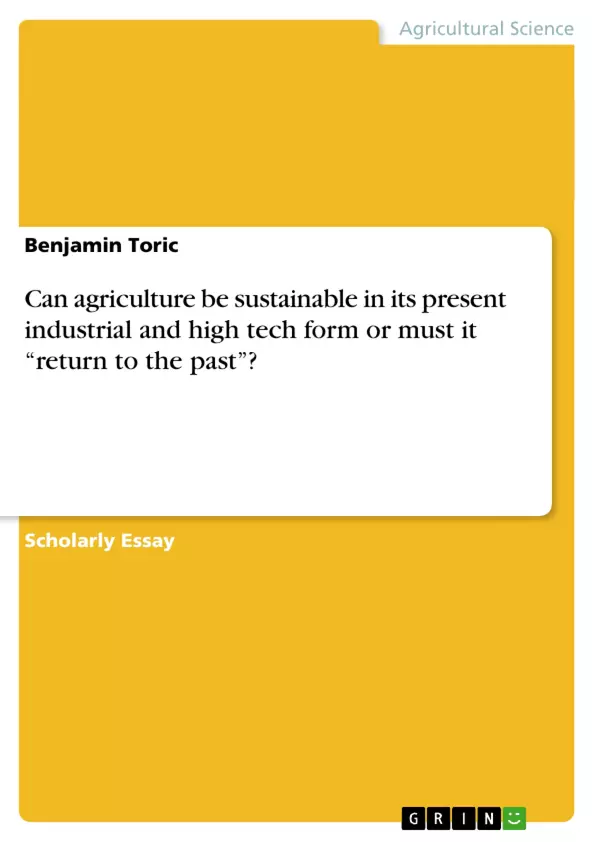There are many environmental and social costs associated with conventional agriculture or what may be termed as industrial or high tech agriculture. There is now general agreement that conventional agriculture is not sustainable. The paper considers the way agriculture can produce enough food for the rising global population and at the same time maintain environmental quality. Effects of agriculture on the environment and issues which affect agriculture are considered. The paper concludes that sustainable agriculture probably relies on a combination of farming systems - both organic and a more sustainable form of conventional agriculture relying on green technologies. Certification systems play an important role in achieving sustainability objectives as do ecological taxes. The issue of trade liberalisation and North-South relations is likely to remain much more contentious and harder to resolve in the future, particularly equitable food distribution.
Inhaltsverzeichnis (Table of Contents)
- Abstract
- Introduction
- Issues in agriculture
- Effects of agriculture on the environment
- Global issues affecting agriculture
- Way forward
- Conclusion
- References
Zielsetzung und Themenschwerpunkte (Objectives and Key Themes)
This paper explores the challenges and potential solutions for ensuring sustainable agricultural practices in the face of a growing global population. It investigates the environmental and social costs associated with conventional agriculture, highlighting the need for alternative approaches to food production.
- The environmental and social impacts of conventional agriculture
- The challenges of meeting global food demand while maintaining environmental quality
- The potential for sustainable agriculture, including organic farming and green technologies
- The role of certification systems and ecological taxes in promoting sustainability
- The complex issue of trade liberalization and North-South relations in the context of food security.
Zusammenfassung der Kapitel (Chapter Summaries)
The abstract introduces the topic of sustainability in agriculture and outlines the paper's key arguments. The introduction explores the unsustainability of conventional agriculture and the challenge of producing enough food for a growing population. It discusses the environmental and social costs associated with conventional farming practices, including soil degradation, water pollution, and social inequalities.
The chapter on “Issues in agriculture” delves into the specific challenges facing agriculture in relation to environmental impacts and global issues. It examines the impact of agriculture on the environment, focusing on land use changes, water usage, and the use of fertilizers and pesticides.
Schlüsselwörter (Keywords)
Sustainable agriculture, conventional agriculture, environmental impacts, food security, global population growth, land use change, water use, fertilizers, pesticides, certification systems, ecological taxes, trade liberalization, North-South relations.
- Citation du texte
- Benjamin Toric (Auteur), 2007, Can agriculture be sustainable in its present industrial and high tech form or must it “return to the past”?, Munich, GRIN Verlag, https://www.grin.com/document/111064



